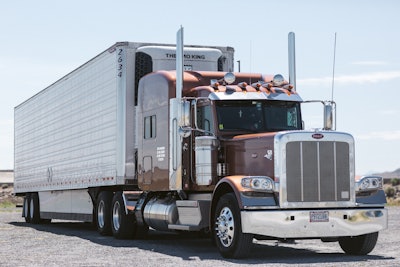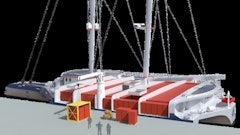
Several trucking groups testified before the House Transportation and Infrastructure Committee's Subcommittee on Highways and Transit on Wednesday, detailing on what the future of trucking entails and how the U.S. economy and offering plans can improve it.
According to Trucking Info, the subcommittee is tasked with writing the next highway funding bill that will authorize what the government spends on infrastructure and other transportation concerns over a multiyear period.
CEO and President of American Trucking Associations, Chris Spear, emphasized the importance of safety and innovation to the subcommittee and promised that the group will work with lawmakers and Congress as it begins to write legislation the reflect the future in trucking.
“ATA pledges to help this subcommittee write legislation that takes into consideration the state and future of the trucking industry, looking beyond the hood – 5, 10, 15 years out – and how we can improve safety through innovation; how we can grow a diverse, well-trained workforce that shores up the very real and well-documented shortage of talent; how trucking can generate and invest real money into our decaying infrastructure; and, how trucking can help you shape free and fair trade agreements that make the United States the strongest economy in the world,” Spear said during his testimony. "These investments also include driver safety training, driver safety incentive pay, and compliance with safety regulations, and while some of these investments are made to meet a myriad of regulatory requirements, many of them are voluntary, progressive safety initiatives adopted by our members and they’re paying dividends in highway safety.”
Meanwhile, the Alliance for Driver Safety & Security, known as the Trucking Alliance, submitted a statement to the committee that detailed reducing truck crashes, adopting collision-mitigation technology and electronic logging devices (ELD), reducing drug use, hiring young drivers and limited truck speeds, Trucking Info reports.
The Trucking Alliance said that no segment of trucking should be exempt from installing ELDs as it would allow some truckers to falsify paper logs.
Trucking Info reports that the group is also in favor of a reasonable maximum speed limit on commercial trucks of 65 mph and deploying collision-mitigation technologies.
Todd Spencer, president of the Owner-Operators Independent Drivers Association (OOIDA), testified before the committee as well, presenting the downsides of the trucking industry. Spencer called the state of the industry "broken," but has hopes of repair as the most critical component of the industry is its drivers, Trucking Info reports.
Spencer discussed how the average American truck driver is struggling to make ends meet as the demanding schedules, low pay and restrictive regulations turn many away from the position. He argued that truckers are the safest drivers, but stiff regulations are only hurting their ability to do their jobs.
“If Congress is serious about improving the state of trucking in America – and I believe you are – you must start by helping to make careers in trucking more viable," said Spencer. “To do so, you must work to create a regulatory environment featuring rules that are proven to enhance safety.”




















